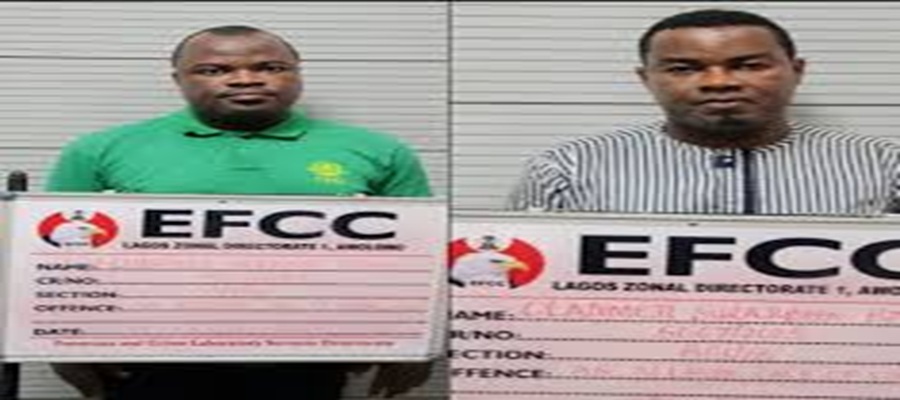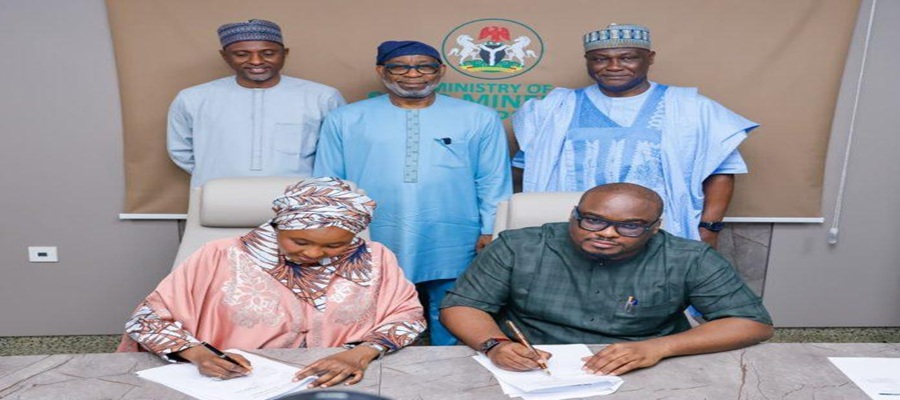News
Atiku Advocates Mobile Technology Use to Conquer Illiteracy

Alhaji Atiku Abubakar, former vice president of Nigeria, has advocated the use of mobile technology to conquer illiteracy in the country.
Posting on his website, http://atiku.org/aa/, he said that, for centuries, reading and writing was the privilege of the few, the upper class and those obliged by religious duty.
Atiku highlighted that, yet the ability to read is the world’s most empowering tool without which participation in a healthy democracy is extremely limited.
According to him, “Today, a literate, educated and informed citizenry forms the backbone of democracy – the peoples’ government.
Reflecting further, he said, “In Nigeria, unfortunately and inexcusably, we are headed in the wrong direction. Here at home, rates of illiteracy are on the rise as a result of prolonged instability and insecurity. Last week, the Executive Secretary of the National Mass Education Commission (NMEC) Alhaji Jibrin Paiko revealed that Nigeria’s illiteracy rate has continued to rise with roughly 56 million illiterate adults.
“Nigeria cannot hope to achieve a successful democratic transition, without first equipping its people with the tools of participation and empowerment.
Addressing insecurity and terrorism does not have to come at the expense of progress in education and infrastructure. In fact, all of these things are so intrinsically related that both must be addressed simultaneously in order to achieve enduring results.
“With Education we have employment, paired with infrastructure we have a Nation that is not open to violence that comes from frustration and that over time leads to a vulnerability to violent extremists.
“Research has shown that many young people participate in organized crime and terrorism as a result of their disenfranchisement and disempowerment. I can see how easy it would be for a person with little to no education and limited prospects for economic security to be seduced into extremism and begin to harbor resentment for a system that has failed them. In order to quell the appeal of criminality, we must work to build a system that promotes progress, creates opportunity and ensures safety and is built on a foundation of freedom and justice for all”.
He said that the fundamental problem with literacy in Nigeria is the lack of printed text and books available.
According to the United Nations Educational, Scientific and Cultural Organization (UNESCO), Nigeria has one library for every 1.3 million people, meeting less than 1 percent of its book needs.
The process of designing, printing, binding and shipping books is a costly endeavor, making printed text prohibitively expensive. Not to mention, books are fragile and easily destroyed.
Atiku added that, “Today, there are new, cost-effective innovations that can be harnessed to deliver text to students, teachers and readers worldwide. In 2013, UNESCO, in partnership with Nokia, began work within Nigeria to expand a mobile educational platform called “English Teacher”, which sends teachers educational content and messages with lesson plans and advice once a day.
“UNESCO found that mobile phones were the most effective way to get text into the hands of the people after finding that “of the estimated 7 billion people on Earth, over 6 billion now have access to a working mobile phone.”
It is important to note that Worldreader Mobile (WRM), another organization working with UNESCO, is a non-profit on a mission to bring e-books to “every child and her family.”
Worldreader allows people to access books and stories from mobile phones and works with local authors to digitize their work in order to provide culturally relevant material to their consumers.
The most attractive aspect of e-readers is that they can reach users of all ages and genders, confronting illiteracy across the board.
“Nigeria can and must take advantage of and harness these opportunities and technological advancements, but federal and local officials need to lay the groundwork. Mobile applications for reading are not enough to teach literacy on their own, but rather provide access to text that did not exist before. Teachers are as significant as ever in their ability to interact face-to-face with students and teach the basics of language.
“Literacy is transformative: it increases earning potential, decreases inequality, improves health outcomes and breaks the cycle of poverty. Our people can and must benefit from an aggressive literacy program that will not only seek to educate the masses for their participation in an effective democracy, but also seek to reengage disenfranchised persons and reduce the number of people turning to criminality to earn a living,” the former vice president said.
News
EFCC Arraigns Two FSDH Bank Officials Over $307k, €50k Fraud


EFCC
News
AfDB Supports Francophone Africa Start-ups with €6.5M

The African Development Bank Group last week approved an investment of €6.5 million in the Saviu II fund in order to support technology start-ups through their seed phase and first institutional fundraising, mainly in French-speaking Central and West Africa.

The Bank will invest €4.5 million as equity and €2 million as a first-loss hedging tranche on behalf of the European Commission, under the Boost Africa Programme.
This participation of the Bank Group will enable the Saviu II fund to give priority to companies with a strong technological or digital component.
Saviu II, the second investment vehicle of Saviu Partners, plans to invest between €500,000 and €3 million in about 20 technology or technology-oriented business-to-business start-ups in the seed phase or carrying out first institutional fundraising.
The Saviu II venture capital fund aims to make at least 60% of its commitments in the French-speaking countries of West and Central Africa: Côte d ‘Ivoire, Cameroon, Benin, Senegal, Togo, Burkina Faso and Mali.
The fund can also co-invest in promising technology companies in East Africa that have a strong team and business model, and whose strategy includes entering the market in French-speaking West African countries and establishing a strong presence there.
In addition, the fund will devote a dedicated envelope to pre-seed investments, focusing on minority equity investments, usually in co-investment with studios, incubators or other ecosystem partners.
News
Nigeria Inks $1.3bn MoU with AFC for Alumina Refinery, Mining Push

Nigerian Government has signed a $1.3 billion Memorandum of Understanding (MoU) with Africa Finance Corporation (AFC) via the Solid Minerals Development Fund (SMDF) to fund an alumina refinery, national geoscience mapping, and a strategic investment vehicle for mining growth.

Special Assistant to the Minister of Solid Minerals Development, Segun Tomori, said the refinery will process one million tonnes of bauxite yearly using a modern Bayer process, powered by an on-site gas-fired cogeneration plant.
Minister Dele Alake called it a transformative milestone boosting GDP, aligning with reforms that improve investment climate, regulations, and licensing to attract private capital. He directed agencies to fast-track permits.
The 20-year project at 95% utilization eyes 19 million tonnes total output, $1.2 billion annual GDP addition, $25 billion economic impact, and $8 billion forex earnings, per feasibility studies.
SMDF Executive Secretary Fatima Shinkafi termed it the agency’s biggest funding deal, supporting value-addition policy.
The partnership extends to geoscience mapping for mineral data, de-risking exploration, and a joint vehicle for mining assets.
Permanent Secretary Engr. Farouk Yabo praised the reforms. Shinkafi signed for government; AFC’s Franklin Edochie for the corporation, witnessed by AFC CEO Samaila Zubairu.
Tomori positioned it as Nigeria’s largest private mining investment and FDI magnet.

 Telecom2 days ago
Telecom2 days agoSunil Bharti Mittal Conferred GSMA Lifetime Achievement Award for Transforming Global Telecommunications

 Telecom2 days ago
Telecom2 days agoWhy Digital Trust Matters: Secure, Responsible AI for African SMEs?

 General News2 days ago
General News2 days agoKrishnan Exits Africa Data Centre to Embark on Professional Chapter

 E-Business2 days ago
E-Business2 days agoJumia Tech Week 2026 Begins with Tech Deals on Smartphones, Electronics, and Everyday Technology

 General News3 days ago
General News3 days agoLeo Stan Ekeh at 70; thanks Tinubu, Obasanjo, Nigerians, Global Tech Community

 Broadcasting2 days ago
Broadcasting2 days agoNCAA Orders Overland Airways to Refund VAT Charged on 2025 Tickets

 E-Financial1 day ago
E-Financial1 day agoNRS Targets N40trillion in Tax, Royalty Revenue in 2026

 Telecom2 days ago
Telecom2 days agoHouse Probes Fintech Regulation via Public Hearing on New Commission Bill



















